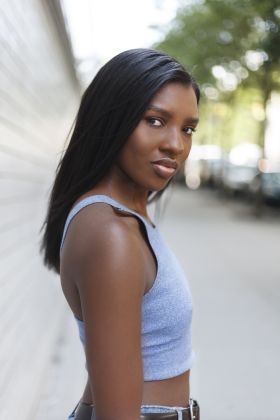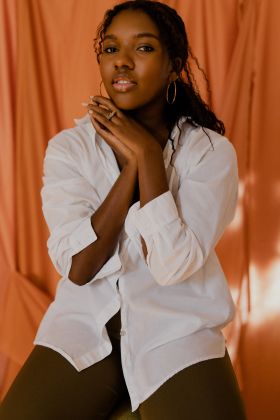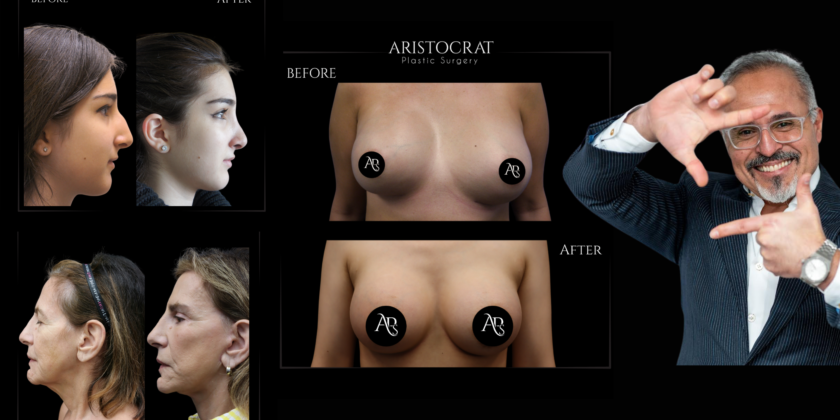King Richard actress and star of the NAACP Image Award-winning short Dear Mama, Mikayla Bartholomew, fell INLOVE with acting early on in life.
“I’d gotten my first professional gig at a major theater festival and began studying Ritual Poetic Drama and Solo Performance. In the busyness, I could see clearly for the first time that I couldn’t live without the art form. It was in me, part of me, all of me, and it still needed to evolve. It was messy and painful and a fight the whole way, but the revelation was that I’d be in this for the long run, telling stories for little Black girls all over, shedding the notion that we are a monolith. I fell in love with acting the moment I could see myself in what I was studying and that I could follow the path laid by those who came before me to redefine what representation looks like for Black artists like me,” she tells INLOVE Magazine.
Bartholomew calls to mind a quote from the late James Baldwin that her mentor, Dr. Tawnya Pettiford-Wates, taught her. “A story is impelled by the necessity to reveal itself.” Impelled means an “urge, drive or force to do something.” “When I think of those words, it’s a reminder that I create because I have to,” Bartholomew says. “There are stories, art, visions, and ideas shut up in my bones that want to come out. I’m inspired by the privilege of having something to say and share with the world. What a sacred opportunity to let that energy out into the world and hope it makes things a little better than before.”
Bartholomew’s role in King Richard came at a time when she was planning on stepping back from acting. She had been working in the New York theater community for about three years while also working with the Broadway Advocacy Coalition as a facilitator for her Theater of Change course at Columbia Law School.


“I was workshopping a new show at the National Black Theatre when I got the call about doing a chemistry read for the movie in L.A. I couldn’t even afford a meal, much less a plane ticket,” Bartholomew remembers, “but no shot was I going to miss out on this. With the help of my family, my former agent, and my community, we got me out there. I was terrified, but I knew one thing for sure – how to be a big sister. I knew what it was to have a family fighting for that slice of joy. Venus and Serena had been role models for me all my life. So, I took a deep breath and channeled what I knew. If it weren’t for our outstanding director Rei Green giving Saniyya, Demi, Daniele, Layla, and me a chance to really connect and be sisters, for Mr. Will and Ms. Aunjanue making sure I had a roof over my head the whole 11 months we filmed, or for the Williams family seeing a bit of Yetunde when they saw me, none of this would have happened. I pay honor to every hand, seen and unseen, that made it possible for me to portray their sister, a woman who was loved by so many and loved them back just the same. The late Yetunde Price taught me so much about not only the craft of portraying someone who actually lived but how to be a better daughter, friend, and sister. I count it all joy that I took the leap of faith to trust in my skill, not only in acting but being a ding dang human being to get me there when I was ready to give up.”


Bartholomew’s recent success, Dear Mama, a film in which she co-stars, just won Outstanding Short-Form (Live Action) at the 54th NAACP Image Awards. “Dear Mama is a film about a young woman and her father trying to find their way through their own grief,” Bartholomew explains. “Tupac’s death compounds the loss of not only Tanisha’s mother but the bond she and her mother shared with his music, and she doesn’t have a place to express it out loud. I know that pain well. I know what it’s like to have all that anxiety, rage, and pain locked up in your chest. The direction from Winter Dunn gave us a safe and loving means to uncover that. To be a part of a film that took such good care of the story and the people telling it, showing a day in the life of Black people just trying to make it through, to tell a story that isn’t rooted in stereotypes, our oppression or subjugation as a people, but instead the universal experience of grief and love between a daughter and her father? Well, I count that as pretty special. How blessed am I to have been chosen to bring that to life alongside our team.”
While she loves her work, Bartholomew points out that the industry still has a long way to go. “To keep my heart lifted and hopes for change high, I ‘Sankofa.’ I look back on how I was raised. The daughter of two Navy veterans who worked within a system that did not care for them, and still, they thrived. They built the life they always dreamed of for themselves, my sister, and me. They did it while sticking to their guns and advocating not only for themselves but all of those around them. So, as I remain dedicated to being a storyteller, I know that it is the wisdom and love poured into me by Eugene and Trina Bartholomew that has given me the gumption to stay true to myself in the midst of the chaos and leave this industry better than when I found it.”
Bartholomew’s work with the Broadway Advocacy Coalition started in college when she began focusing on doing shows highlighting inequities faced by marginalized communities. “It was astonishing to see that art could move people to not only act but incite social good. I knew I wanted to find a way to remain involved with advocacy work after I graduated, particularly because of my participation in the Black Lives Matter protest efforts, the #MeToo movement, and calling for change to the racist and discriminatory policies in my university’s theater department. Being Black in America, it felt like there was no other choice than to get involved in the fight for liberation. I’d found myself doing and living it every day. So I submitted my grant proposal from my senior thesis project with my application to become one of their artists in residence for BAC’s first-ever Theater of Change course at Columbia Law School and never looked back. The work at BAC centers on the leadership of people and communities directly impacted by incarceration and other systems of oppression fueled often by racism and White supremacy. With a vision to develop our individual and collective ability to blend artistry, law, policy, and community engagement in an effort to inspire change in policy spaces, I was sold. Working with BAC for the last four years has changed the way I reimagine justice and reaffirmed the responsibility of the artist in this world. It has taught me that those most directly impacted by a problem are often the closest to the solution, and none of us will be free until we’re all free.”
In conjunction with her work at BAC, Bartholomew helped produce the inaugural Arts in Action Festival in 2022. The Arts in Action Festival was born out of need, the actress points out. The festival was a space for organizations and individuals working at the intersection of arts and advocacy to showcase their work and celebrate the resilience of the justice-impacted community in New York City. “We curated workshops, performances, panels, discussion groups, galleries, and video exhibits that allowed participants and organizations to experience the power of storytelling as a tool to reimagine and create more humane policies and systems. It was a day filled with music and human breath, laughter and creation, a day overflowing with collaborative opportunities.”
Mikayla Bartholomew is on the rise. Blending artistry and advocacy, she continues carving out her own path in the world. Next up, she’ll be launching her first solo podcast. All the while, she lets love guide her way. “Love guides my way by reminding me I’m alive,” Bartholomew adds. “I’m human, and there’s more, so much more joy to uncover in life if I continue to practice loving diligently.”
Words by Sari Cohen




